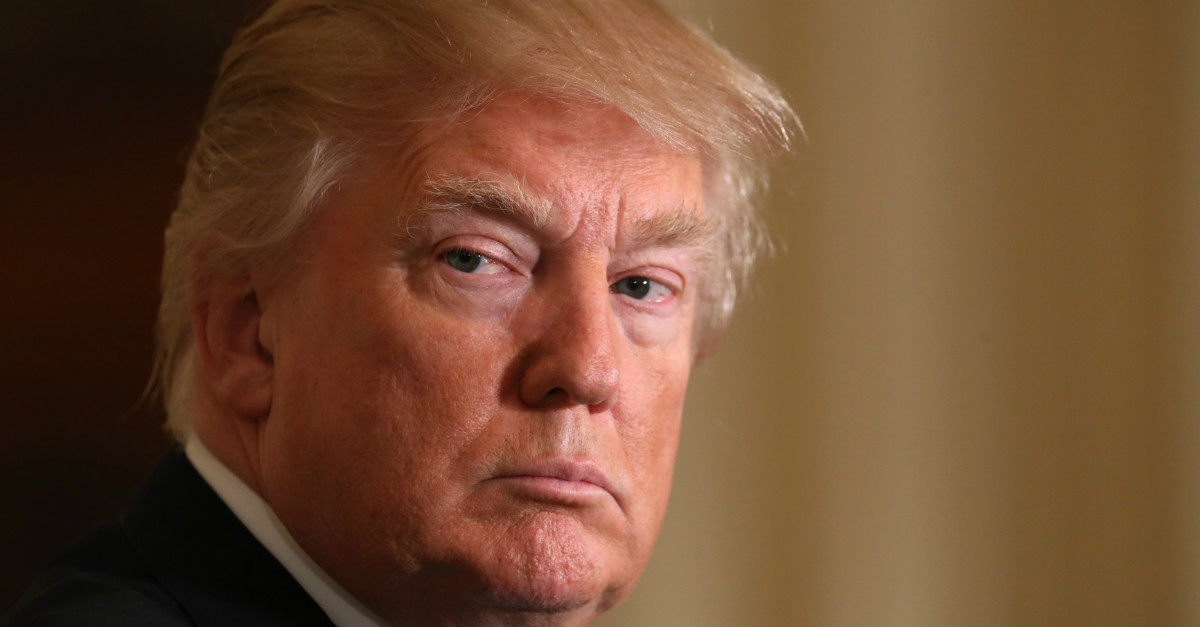In one of his usual televised tomfooleries, this time in a plenary session of the newly formed Constituent Assembly (a kind of pseudo-democratic parliament that has replaced the rightful legislature in a rigged election), the Venezuelan dictator Nicolas Maduro urged his secretary of state to make the necessary arrangements to talk on the phone with President Donald Trump to address the relationship between their countries.
Videos by Rare
The Trump administration didn’t take long to reply to Maduro’s request. In a statement released Friday, the White House said: “President Trump will gladly speak with the leader of Venezuela as soon as democracy is restored in that country.”
Such an assertion of principles in defense of democracy and freedom sounds admirable. The problem is that the U.S. government does not seem to care much about liberties in other parts of the world. In plain language, the statement oozes with hypocrisy.
For instance, for his first trip to a foreign country, President Trump visited the sinister dictatorship of Saudi Arabia where he signed an agreement that sold hundreds of billions of dollars in weapons and defense services to the Arab state over the next 10 years. Saudi Arabia is far from being a democratic country that respects human rights. On the contrary, it has been denounced multiple times by organizations like Amnesty International and Human Rights Watch for violating the most basic rights, including the recent war crimes in the Yemeni Civil War. And yet, Saudi Arabia is one of the main U.S. allies in the Middle East.
RELATED: The left’s useful idiots emerge for one last round on Venezuela
It goes without saying that this hypocrisy is not exclusive to the current administration. America’s post-World War II foreign policy is plagued by countless disgraceful episodes—from sustaining dictatorships to the killing of civilians via drone strikes—while U.S. presidents spoke in public about the importance of promoting democracy and freedom across the world.
Don’t get me wrong, I’m not advocating cutting off economic, political and diplomatic ties with all undemocratic governments. After all, foreign policies based on the imposition of sanctions on authoritarian regimes have proven to be ineffective in the past. The Cuban embargo is the most obvious example. In addition, sanctions tend to harm those whom they try to help (although maybe not as much as it has been suggested in the past) and often lead to the isolation of the country in question, delaying rather than helping boost political and economic reforms.
But the foreign policy of any democratic country that minimally upholds human rights and civil liberties, while it should take into account the unintended consequences of intervening abroad, must also at the same time demand respect for individual freedoms.
How can such an approach be taken in Venezuela? The imposition of financial sanctions on high-ranking government officials who are involved directly or indirectly in the violation of human rights could be a good start. The recent freezing of assets imposed by the U.S. on targeted Venezuelan politicians should not have a direct impact on the already-deteriorated economic situation of the Venezuelan population and sends a clear message to the authoritarian regime in Caracas. For those reasons, it’s a good idea.
RELATED: How Donald Trump accidentally greenlighted a Saudi-led foreign crisis
I understand that foreign policy is one of those issues about which it is easier to talk than to make decisions. Yet, inconsistencies like the ones over Trump’s Venezuela statement reveal either a lack of principles or a perverse pragmatism that can lead one to justify some atrocious crimes while condemning others, depending upon who commits them.
For this reason, the Trump administration should be more careful when it makes such a declaration of principles. It might apply well to Venezuela but what about the Middle East?



